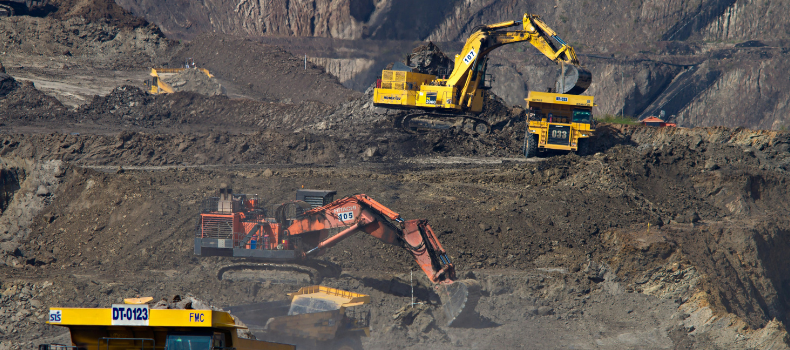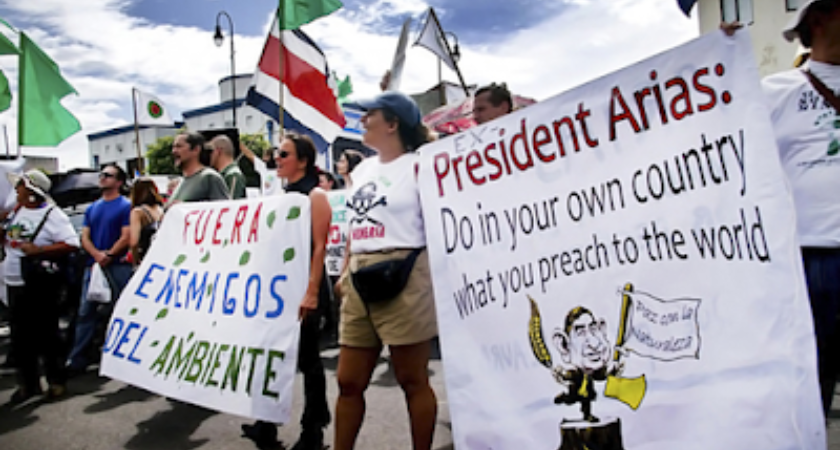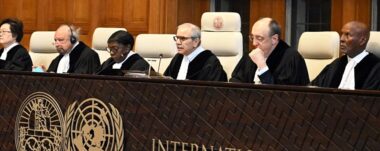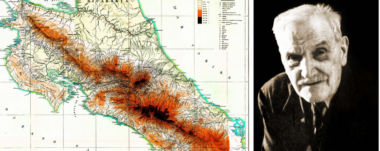Infinito Gold vs. Costa Rica: Canadian Mining Company Could Desist…

Original title: “Infinito Gold vs. Costa Rica: Canadian mining company seems to desist in exchange for … (?)”. Text written by Professor Nicolás Boeglin, from the Law School of the University of Costa Rica.
According to information provided by CIARGlobal’s specialized investment arbitration site (see note), the Canadian mining company Infinito Gold appears to be withdrawing from the case pending before the International Centre for Settlement of Investor-State Disputes (ICSID) against Costa Rica.
The use of the conditional is due to the fact that, at least officially, nothing has transpired from the ICSID, nor has any official announcement been made by the Costa Rican foreign trade authorities, in charge of carrying out the defense of Costa Rica before the ICSID, through the hiring of specialized North American law firms (in this precise case, the firm Arnold & Porter Kaye Scholer).
Brief Background
As will be recalled, on June 4, 2021, ICSID released an arbitration award partially favorable to Costa Rica (see text) in response to the claim filed by Canadian mining company Infinito Gold in February 2014.
In this article published by Semanario Universidad of July 2021 (see text) in which it mentions the participation of illustrious Costa Rican jurists who appear as witnesses for the mining company, one reads an unusual lambasting, rarely read in a press medium in Costa Rica: “Juridically and logically it is nonsense; it is simply stupid“.
This award was the subject of a request for partial annulment by the Canadian mining company in October 2021, which we had the opportunity to analyze in a previous note upon the constitution of the arbitral panel in the first days of 2022: see our note entitled “Infinito Gold vs. Costa Rica: formation of an ICSID Committee to examine the request for annulment of the arbitral award filed by the mining company” of January 18, 2022.

Some Details
There is still no official confirmation from ICSID. It is only stated in the procedural details of the case available on its official website (see link) that the last procedural episode dates from June 14, 2024:
The parties file a request for the discontinuance of the proceeding pursuant to ICSID Arbitration Rules 53 and 43(1).
June 14, 2024
If, as indicated, both parties (Infinito Gold and Costa Rica) – and not only one (Infinito Gold) – have requested that the case be subject to some kind of suspension or if the company has definitely decided to withdraw, this should be confirmed in some official decision, which is not known at this time.
Since Infinito Gold has not had an office in Costa Rica for many years, there is no way to request confirmation. A few years ago, its former CEO Erich Rauguth answered his emails from a current account at gmail.com, and there is no known official Infinito Gold website: certainly minor details, but which give a small idea of the few resources of a company called Infinito Gold. We refer our esteemed readers to the article “Op-ed: ‘Zombie’ Canadian mining company, Infinito Gold, stalks Costa Rica“, published in the Tico Times by Canadian activist Rick Arnold in May 2015, which explains the “Zombie” character of Infinito Gold.
Infinito Gold vs. Costa Rica
In Costa Rica, the authorities have not made any public announcement regarding this case pending before ICSID. It reads in this note from the National Radio and Television System (SINART) published on June 25 that:
Consultado sobre la decisión de retirar el arbitraje, el ministro de comercio exterior, Manuel Tovar, ni la confirmó, ni la desmintió. “Informaremos a la opinión pública conforme se concreten eventos firmes en el proceso que espero sea pronto”, le dijo a Trece Noticias. Otra fuente cercana a la canadiense Infinito Gold, dijo que “la empresa no hará ningún comunicado.
In April 2024, it was read of an “Integrated Plan” in the area of Las Crucitas with declarations of the president of Costa Rica that raise some doubts (see note of CRHoy). This June 26 in La República (Costa Rica), it was read by an environmental leader of the Costa Rican Northern Zone who took the mining company to the courts of justice in 2010 (see note) that:
¿Por qué el gobierno ha insistido tanto en que no se puede plantear nada en Crucitas hasta que se resuelva el arbitraje? ¿Tiene claro el gobierno que nada de lo que se resuelva en el laudo afectará el futuro de esa zona? Y lo más importante, ¿qué negoció el Gobierno? ¿A qué se está comprometiendo? ¿Hay uso de fondos públicos de por medio? ¿Consideraron las prohibiciones legales existentes y nuestra normativa ambiental? Por el talante de este gobierno podría uno esperar cualquier cosa.
Araya said
ICSID And Its Inaccuracies
It should be noted that Articles 53 and 43(1) cited on the official ICSID website … are not provisions that apply to the situation indicated, which raises very valid questions (see text).
Indeed, if it is both parties that have requested that the case be discontinued, it would be Article 55 that applies and not the aforementioned provisions 53 and 43(1):
Regla 55 Avenencia y Descontinuación por Acuerdo de las Partes:
(1) Si las partes notificaran al Tribunal que han acordado descontinuar el procedimiento, el Tribunal emitirá una resolución que deje constancia de la descontinuación.
(2) Si las partes acordaran avenirse respecto de la diferencia antes de que se dicte el laudo, el Tribunal: (a) deberá emitir una resolución que deje constancia de la descontinuación del procedimiento, si las partes así lo solicitaran; o (b) podrá incorporar la avenencia en la forma de un laudo, si las partes presentan el texto completo y firmado de su avenimiento y solicitan al Tribunal que incorpore dicho avenimiento en un laudo.
(3) El secretario general emitirá la resolución a la que se refieren los párrafos (1) y (2)(a) si aún no se ha constituido el Tribunal o si existe una vacante en el Tribunal.
For some reason (which would be of great interest to know), ICSID on its official website refers to provisions that are not applicable to the present case (agreement of both parties), but to the case of withdrawal by one of the parties.
Of course, the interest remains also to know exactly the terms of the “agreement” between both parties, in particular what was obtained by the company in exchange for desisting.
Some Brief Reflections
The lack of transparency of ICSID is one of the main reasons why many States keep their distance from the investment arbitration system it provides for, and it is reconfirmed in this precise case: to date, the terms of the request for partial annulment of the June 4, 2021 award filed by the Canadian mining company in October 2021 are unknown, as well as the written documents containing the pleadings of the Canadian mining company and Costa Rica. The future will tell us whether the terms of the “agreement” between the Canadian mining company and Costa Rica will be accurately disclosed to the public, … or whether part of the agreement is that it is not public.
In recent decades, ICSID has aroused many reservations in various circles in Latin America, but also in other parts of the world, due to the lack of transparency in its procedures, the profile of its arbitrators (often unfamiliar with such sensitive legal issues as environmental protection, the right to water and indigenous peoples’ rights, administrative and constitutional law), as well as the millions of dollars and sometimes disproportionate amounts to which States have been sentenced in some cases, for claims that have been submitted to ICSID, the right to water and the rights of indigenous populations, administrative and constitutional law), as well as the million-dollar and sometimes disproportionate amounts to which States have been condemned in some cases, for clearly abusive claims by a foreign investor (Note 1). It is worth noting that when ICSID was created in 1965, the idea was to allow an investor to recover the amount of its initial investment subject, for example, to a nationalization decree, and not to add to this amount additional amounts corresponding to future profits projected by the foreign investor and not received (Note 2).
Infinito Gold vs. Costa Rica
We had the opportunity to analyze the denunciation by Honduras of the Washington Convention creating ICSID in March 2022, which comes in addition to the previous denunciations by Bolivia, Ecuador and Venezuela: see our brief note entitled “ICSID: regarding the recent denunciation by Honduras of the 1965 Washington Convention“. In Latin America, Brazil, the main recipient of foreign investment, has not even signed the 1965 Washington Convention.
At the time of writing (June 27, 2024), Latin America has the largest number of claims pending before ICSID, Mexico (20 pending claims), Peru (19 pending cases), Venezuela (16) as well as Colombia and Honduras (10 pending cases). Next come Panama (8), Argentina (6), Costa Rica (3), Uruguay (2), while Chile, Ecuador, El Salvador, Dominican Republic, Nicaragua only have one claim. In the case of Bolivia and Paraguay, no claims are pending.
Having never ratified the 1965 Washington Convention, no action has been registered before ICSID in relation to two Latin American States that receive foreign investment flows without major need to submit to ICSID investment arbitration: Brazil and Cuba.
Investment Arbitration, The Environment And Human Rights: A Recent Overlooked Report
In a recent press release from the UN Office of the High Commissioner for Human Rights from October 2023 (see text), it read that:
Foreign investors use the dispute settlement process to seek exorbitant compensation from States that strengthen environmental protection, with the fossil fuel and mining industries already winning over $100 billion in awards,” the expert said. “Such cases create regulatory chill“.
As this is a press release issued by the European headquarters of the United Nations that was very little referenced in the international media, we allow ourselves to reproduce another quotation from it, but we recommend reading it in its entirety:
As ISDS arbitration tribunals routinely prioritise foreign investment and corporate interests above environmental and human rights considerations, ISDS claims have devastating consequences for a wide range of human rights, exacerbating the disproportionate harms suffered by vulnerable and marginalised populations.
the expert said
The comprehensive report of the UN Rapporteur on the issue of human rights obligations relating to the enjoyment of a safe, clean, healthy and sustainable environment is available at this link. In Spanish language, his report A/78/168 of July 13, 2023 entitled “Paying polluters: the catastrophic consequences of investor-state dispute settlement for climate and environmental action and human rights” is available at this link.
We suspect that some of our esteemed readers will become aware of the contents of this report and its existence upon reading us, given the scant publicity and dissemination given to this important report in some international and national media.
Shadows of Crucitas Mining Project Shrouded Before ICSID
Were it not for the aforementioned CIARGlobal note, no new information on the development of this long-running ICSID dispute in Costa Rica related to the mining project located in “Las Crucitas“, could be made public.
Let’s remember that this was a mining project located in the Northern Zone of Costa Rica, which was intended to be the largest in Central America. This project, in charge of the Canadian mining company Infinito Gold, was declared by decree “of national convenience” in October 2008, and its total illegality was ruled in November 2010 by three brave judges of the Contentious Administrative Court (TCA): the reading of their sentence (see text in full) merits a re-reading given the attempts of deregulation in environmental matters that have been discussed in recent months in Costa Rica. Recall that, according to the TCA judges, paragraph XL of their sentence of December 14, 2010, reads that:
En relación con este punto, es necesario indicar que en el presente caso ocurre algo excepcional y es que las distintas ilegalidades detectadas y las nulidades declaradas, son todas coincidentes en el sentido de que tendían a la aprobación del proyecto minero Crucitas y varias de ellas se dictaron estando vigente un decreto ejecutivo de moratoria de la minería metálica de oro a cielo abierto, todo lo cual hace viable pensar como posible una eventual concurrencia u orquestación de voluntades para llevar adelante, de cualquier manera, este proyecto minero.
(emphasis added)
Infinito Gold vs. Costa Rica
In November 2011 this decision was confirmed by the First Chamber of the Supreme Court of Justice (see text). It is noteworthy that the reversal of the burden of proof in environmental matters alleged by the appellant in its appeal and rejected by the First Chamber (paragraphs XIX and XX of the judgment of the First Chamber) denotes the ignorance of this principle – something basic – and its legal reality in Costa Rica; an ignorance that, apparently, still extends to some members of the current Constitutional Chamber, when they analyzed in 2020 the scope of the provisions of the Escazú Agreement (Note 3).
A few days before it was issued, the press reported the “leaking” of the draft sentence to the company’s lawyers (see note of Semanario Universidad): an unprecedented event in the history of Costa Rican justice, whose authors to date (June 26, 2024) have not been sanctioned by any entity (Bar Association, criminal justice, administrative justice, …).
In February 2014, a few days after the Costa Rican election results were known, the Canadian mining company found nothing better than to sue Costa Rica before ICSID. To date, it is not known what led the mining company to wait for the February 2014 election results to formally file a claim against Costa Rica.
Let us note that, in 2021, again efforts were made to know the nominal list of a group of “experts” who advised the Vice President of Costa Rica in July 2010, without much success. We read in this article of the Semanario Universidad that:
En 2010, Piva dijo que un “grupo de expertos” afirmó que, en caso de indemnizar a Infinito Gold, por no desarrollar el proyecto de minería en las Crucitas, el Estado debería pagar $1.700 millones. En 2014 el ministro de Ambiente René Castro dijo que un grupo de expertos estaba asesorando al Ministerio de Comercio Exterior (Comex) y al Minae en el tema. Sin embargo, nunca se conocieron los nombres de este “grupo de expertos.
Infinito Gold vs. Costa Rica
A group of “experts” who advised a Costa Rican vice president in July 2010 without being able to know, 14 years later (June 2024), the list of its members? How so? As it reads.
Finally, it is not superfluous to point out another secret very well kept by the upper echelons of power in Costa Rica related to this controversial mining project: in 2003 for the same Las Crucitas mining project, the Canadian company previously in charge of this mining project (at that time Vanessa Ventures) threatened to sue Costa Rica before ICSID for rejecting its Environmental Impact Assessment (EIA) by its environmental authorities. The claim was then for US$276 million (see note from La Nación of September 2005).
In a letter dated October 4, 2005 (see text), the ICSID Secretariat indicated to the Costa Rican authorities that the claim filed by the Canadian company Vanessa Ventures was withdrawn. As a detail of interest, in the annex dated October 3, 2005 (see document), the law firm Tory’s explained that the company and the Costa Rican State were in negotiations and that the company was “reasonably optimistic” about the outcome: the optimism was confirmed on December 12, 2005, when the National Environmental Technical Secretariat (SETENA) approved the EIA. As of this writing (June 27, 2024), there is no identity of who, on behalf of the Costa Rican State, negotiated such an “arrangement” with the Canadian mining company that can well be summarized as follows: “if you desist, we will approve the EIA“.
In Conclusion
For several years now, Canadian mining companies have repeatedly used ICSID to try to obtain before this international body what the national justice system has denied them.
Regarding Canadian mining companies, and their closeness to some political sectors that explain their repeated legal adventures in Central America, in November 2023 we had the opportunity to analyze the declaration of unconstitutionality of a mining contract in Panama by the constitutional justice (see text of the judgment): a contract adopted in a strangely swift manner by the Legislative Branch in October 2023 and which launched, as rarely in its history, Panamanians to mobilize in the streets for several weeks. In this regard, we refer our esteemed readers to our note entitled “A propos of the declaration of unconstitutionality by the Supreme Court of Justice of Panama of a mining contract law“.
Regarding Canadian mining companies and Canada as such, since 2014, a report on the negative impact of Canadian mining companies in Latin America has been patiently waiting for Canadian authorities to take action to regulate their activities from Canada, particularly from the perspective of human rights and environmental protection (Note 4). A similar reflection is required in view of the high number of cases being heard before ICSID by mining companies against Latin American States, and which the aforementioned report of the United Nations, scarcely disseminated, insists on.
Text shared by Nicolás Boeglin, Professor of International Public Law, School of Law, University of Costa Rica (UCR). Contact: [email protected]
Notes
Note 1: On the various strategies of the States of the Latin American region to limit the scope of certain treaties with highly favorable clauses for foreign investors, see the detailed analysis of Professor Katia Fach Gomez: FACH GOMEZ K. , “Proposing a conciliatory decalogue for Latin America and ICSID“, Revista Facultad de Derecho y Ciencias Políticas (Medellín, Colombia), Vol. 40 (Dec. 2010), No. 113, pp. 439-454, article available here.
See also publication FACH K & TITI C. “The Latin American Challenge to the Current System of Investor-State Dispute Settlement“, Journal of World Investment & Trade 17, 2016, pages 511-699.Así como FACH GOMEZ K. & TITI C., Alternative Dispute Resolution Mechanisms, Oxford University Press, Oxford, 2018, 800 pages. On Indonesia’s revision of more than 50 BITs signed, see in particular this very detailed study by HAMZAH, LAMPUNG University, “Bilateral Investment Treaties (BITS) in Indonesia: a paradigm, shift, issued and challenges“, Journal of Legal, Ethical and Regulatory Issues, Volume 21, Issue 1, 2018. Full text available here.
Note 2: On the negative effects for the economies of Latin American States of these millionaire amounts ruled by ICSID arbitrators and that were consolidated with the network of BITs adopted enthusiastically – and in our modest opinion somewhat naively – in the 1990s-2000s, we refer to the very complete article by ZABALO P. , “Latin America in the face of investor-state claims“, Revista de Economía Mundial, No. 31 (May-August, 2012), pp. 261-296. Text available here.
Infinito Gold vs. Costa Rica
Note 3: See in this regard our brief note BOEGLIN N., “The entry into force of the Escazú Agreement: a celebration in Latin America and a deep displeasure in Costa Rica“, published in DerechoalDia, May 4, 2021 edition. Text available here. On the principle of reversal of the burden in environmental matters contained in the Escazú Agreement that a Costa Rican judge of the Constitutional Chamber interpreted completely erroneously in a vote in March 2020, see a staunch criticism recently released: CHINCHILLA-CALDERÓN R., “Principio de inocencia, ‘carga de la prueba’ penal, delitos ambientales y Acuerdo de Escazú“, Revista Iberoamericana de Derecho, Cultura y Ambiente, 2024. Full text available here.
Note 4: See in this regard the report entitled ” The Impact of Canadian Mining in Latin America and Canada’s Responsibility – Report submitted to the Inter-American Commission on Human Rights“, Working Group on Mining and Human Rights in Latin America, 2014. Full text available here.
Navigate articles





